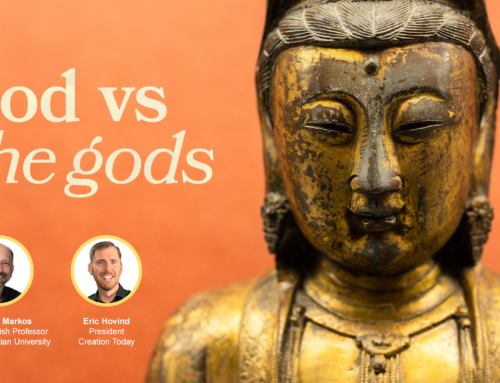Every schoolchild knows that the dinosaurs died out because a giant meteorite—possibly even an asteroid—hit the Earth at Chicxulub in Mexico at the end of the Cretaceous period, sending up a great global cloud of dust, which killed off all the dinosaurs. Remarkably, environmentally sensitive creatures like butterflies and frogs were unaffected by this evolutionary global catastrophe, but the great big clod-hopping dinosaurs couldn’t stand the change.
Theories of extinction
Of course, that method of extinction wasn’t always favored by scientists. When I was at school—back in the olden days, as my son is keen to point out—I was taught that the dinosaurs died out because their eggshells were getting gradually thinner, so that they started being eaten up by naughty, furry mammals. But there seems little actual evidence for this eggshell thinning, so today it is all to do with a Chicxulub impact, which offers the proof we need that dinosaurs died out at the end of the Cretaceous.
More doubts
Except it provides no such proof! A report in London’s Daily Telegraph suggests that a lot of dinosaurs were not killed by the so-called KT-event1 (K stands for Cretaceous, as C is already used for Cambrian). The article suggests that a hadrosaur fossil has been dated at “only 64.8 million years old—meaning that it was alive about 700,000 years after it was thought to have died.” Now, I don’t accept this date, which has been produced “directly” using a new form of Uranium-Lead dating, and our website already contains articles on the problems of radiometric dating. Nevertheless, the importance of the article is in the doubt that it casts on the KT Impact Event. If a significantly large group of dinosaurs are thought by evolutionists not to have been made extinct by the alleged KT event, then what is the point of hypothesizing such an event? I am not a betting man, but the probability of scientists still believing in the KT event in ten years’ time must be pretty small.
Global catastrophe = global Flood
Meanwhile, the Bible and the geological evidence, correctly understood, both agree: There is considerable evidence for a global catastrophe. But it was not a meteorite impact—it was the global Flood.
- Dinosaurs survived for at least 700,000 years after meteorite collision, January 28th 2011, < http://www.telegraph.co.uk/science/dinosaurs/8288863/Dinosaurs-survived-for-at-least-700000-years-after-meteorite-collision.html > ↩






